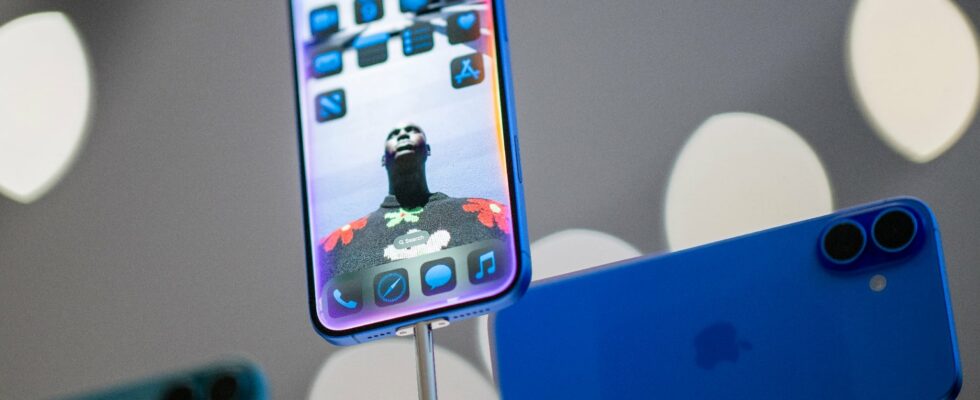The event was highly anticipated. Apple presented, this Monday, September 9, a new range of smartphones (iPhone 16), boosted with “Apple Intelligence”, its in-house generative artificial intelligence (AI).
“I think people are going to love what we’re doing with Apple Intelligence. When you start using it, it changes your life,” said Tim Cook, the company’s CEO. “Apple Intelligence marks the beginning of a new era for Siri,” promised vice president Craig Federighi, in a video broadcast at the headquarters in Cupertino, California. According to him, the new AI system makes the assistant “more natural, more adapted to the context in which you find yourself, and more personal.”
With this technology, users will be able to “transform notes into well-written invitations” or create illustrations with a simple request. They will see a summary of each email instead of the first two lines and will also be able to ask Siri more complicated questions, for example to find a photo in their albums by describing it orally.
Catching up on AI
Apple is betting big on its iPhone 16. Its neighbor Google and especially the South Korean Samsung, the world number one in smartphones, have already launched handsets equipped with generative AI. Meta (Facebook, Instagram), Microsoft (OpenAI’s main investor) and Google have also been offering and marketing similar tools for months now, which make it possible to produce high-quality content based on a simple query in everyday language.
Apple unveiled Apple Intelligence in early June, a year and a half after the start-up OpenAI launched the wave of generative AI with ChatGPT. The Californian group is now catching up on the delay it had taken on the star technology of Silicon Valley. “These new iPhones are very important. This is Apple’s most profitable product category and the essential cog in its rapidly expanding universe of services and subscriptions, its second most profitable activity,” underlined Gadjo Sevilla, analyst at Emarketer.
But “it’s one thing to have the features, and it’s another to make them personal and integrate them into the device,” notes Carolina Milanesi. This independent analyst believes that Apple has innovated enough in smartphones, with a new chip and a new button dedicated to the camera, as well as in the operating system, with the integration of generative AI, to encourage many customers to buy a new model. All the tech giants are looking to develop the perfect AI assistant, a sort of personal secretary, well-informed and available at all times, easily.
Apple Intelligence deployed very gradually
Apple, true to its principles on data confidentiality – which have contributed to its success – has insisted on this crucial aspect, especially since its new system is based in part on a partnership with OpenAI. “We offer intelligence that understands you, in a way that protects your privacy,” promised Craig Federighi. “Your data is never stored or shared with Apple. It is only used to respond to your requests.”
Apple needs a sales pitch to revive its phones, which have been losing momentum. For the period from April to June, iPhone revenue fell 1% year-on-year to $39 billion. However, some observers have expressed doubts about Apple’s ability to capitalize on generative AI. Especially since the update with Apple Intelligence will be deployed very gradually, starting with certain features in English for the United States next month, on compatible devices (for smartphones, the iPhone 15 Pro and all iPhone 16s). In the European Union, the group has postponed indefinitely the launch of Apple Intelligence, due to “regulatory uncertainties” related to new laws on digital markets.
During this new launch, the company also presented its new Apple Watch smartwatches, which detect sleep apnea, and its new wireless headphones (AirPods), some of which will include hearing aids. The American firm thus intends to penetrate the health market even further.
